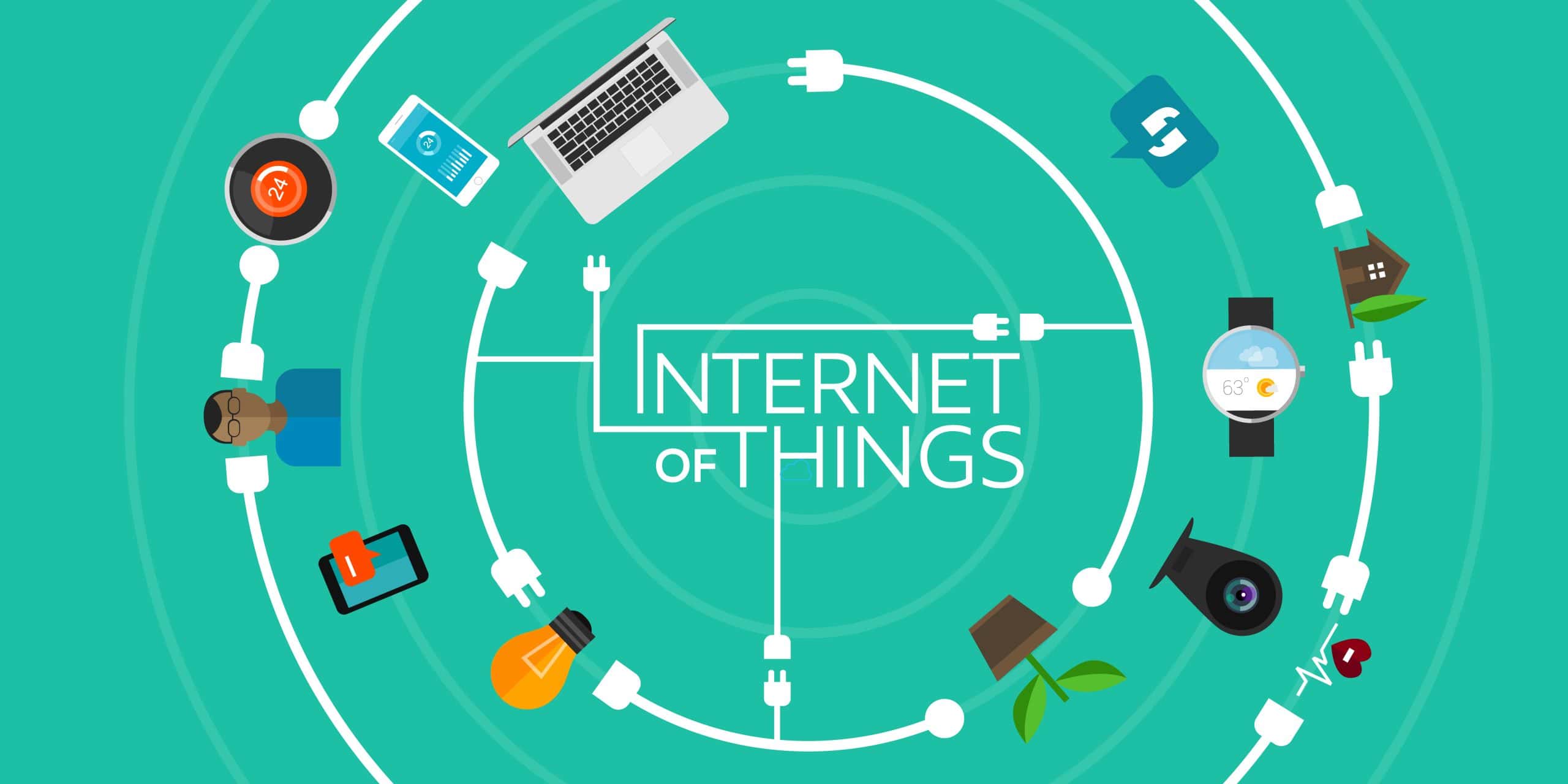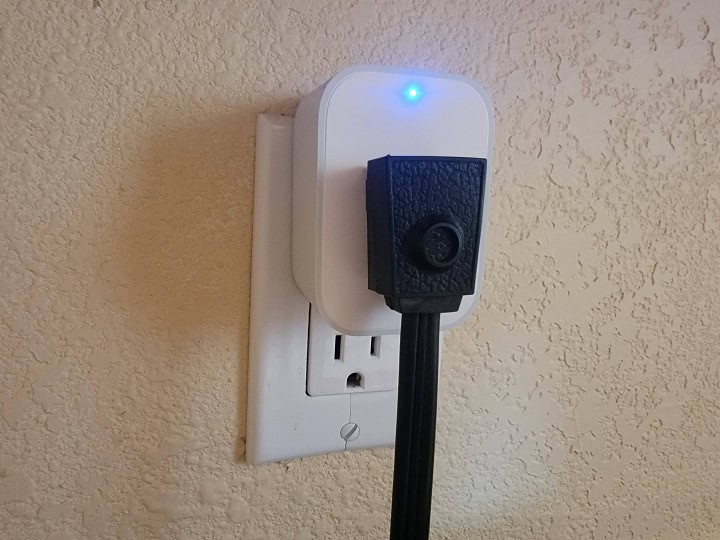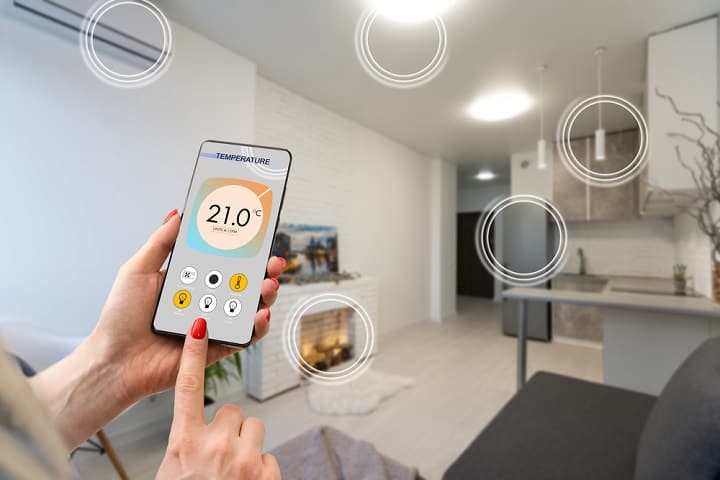Are you curious about the latest buzzword in technology? Wondering what all the fuss is about when it comes to IoT? Look no further! In this blog post, we are going to delve into the world of IoT and uncover what it’s all about. Whether you’re a tech enthusiast or just someone who wants to stay up-to-date with the latest trends, this post is for you. So grab a cup of coffee and join us as we unravel the mysteries of IoT and explore how it’s shaping the way we live, work, and interact with the world around us. Trust us, you won’t want to miss this!
What is IoT?
The Internet of Things, commonly referred to as IoT, is a revolutionary technology that has gained significant attention in recent years. It refers to the network of physical devices, vehicles, appliances, and other objects embedded with sensors, software, and connectivity, allowing them to collect and exchange data over the internet.
IoT has its roots in the early 1980s when researchers at Carnegie Mellon University connected a Coke vending machine to the internet, making it the first internet-connected appliance. However, it wasn’t until the late 1990s that the term “Internet of Things” was coined by Kevin Ashton, a British technology pioneer. Since then, IoT has evolved rapidly, with advancements in wireless technology, cloud computing, and data analytics driving its growth.
Sensors and Devices: IoT devices are embedded with sensors that can monitor and measure different parameters such as temperature, humidity, motion, and more. These sensors enable the devices to gather real-time data from their environment and provide valuable insights.
Connectivity and Communication: Connectivity is a crucial aspect of IoT, as it allows devices to communicate with each other and transmit data over the internet. IoT devices can connect through various means, including Wi-Fi, Bluetooth, cellular networks, or even satellite connections. This connectivity enables seamless data exchange, enabling devices to work together and respond to changing conditions.
Pros of IoT
One of the key benefits of IoT is improved efficiency. By connecting devices and systems, IoT enables automation and remote control, leading to increased productivity and reduced costs.
Another advantage of IoT is enhanced decision making. The vast amount of data collected by IoT devices allows businesses and individuals to gain valuable insights and make informed decisions. With real-time data and analytics, companies can optimize their operations, predict maintenance needs, and improve overall performance.
Cons of IoT
However, the adoption of IoT also presents several challenges. Security and privacy concerns are major issues as more devices become connected. With a larger attack surface, the risk of data breaches and unauthorized access increases. Additionally, interoperability issues arise when different devices and systems from various manufacturers need to work together seamlessly.
FAQ
How does IoT work?
The IoT or Internet of things works by equipping devices with sensors, which detect and capture data about their environment or usage. This data is then transmitted over the internet to a central system or cloud-based platform, where it can be analyzed and processed. Through this connectivity, IoT enables devices to communicate with each other and with humans, creating a seamless and intelligent ecosystem. The data collected can be used to automate processes, improve efficiency, and provide valuable insights for businesses and individuals. With the increasing adoption of IoT, we can expect to see advancements in areas such as smart homes, healthcare, transportation, and more.
What are the benefits of IoT?
One of the key benefits of IoT is increased efficiency and productivity. With IoT, devices and sensors are connected, allowing for seamless communication and automation. This can streamline processes, optimize resource utilization, and ultimately save time and money. Another benefit is improved convenience and comfort. IoT enables smart homes and smart cities, where various devices can be controlled remotely, making life easier and more convenient. It can also enhance safety and security by monitoring and alerting in real-time. Additionally, IoT has the potential to revolutionize industries such as healthcare, agriculture, and manufacturing by enabling better data collection, analysis, and decision-making. Overall, the benefits of IoT are immense and have the potential to transform the way we live and work.
What are some examples of IoT devices?
Some popular examples of IoT devices include smart thermostats, such as the Nest Learning Thermostat, which can learn your preferences and adjust the temperature accordingly. Another example is smart home security systems, like the Ring Video Doorbell, which allows you to monitor and control your home security remotely from your smartphone. Additionally, there are wearable devices like fitness trackers and smartwatches that collect and analyze data about your health and activities. Smart appliances, such as refrigerators or washing machines, that can be controlled remotely or provide information about energy usage are also part of the IoT ecosystem. These are just a few examples of the wide range of IoT devices available, and as technology continues to advance, we can expect even more innovative and convenient IoT products to emerge.
Is IoT secure?
Yes, IoT (Internet of Things) devices can be vulnerable to security risks, but there are measures that can be taken to enhance their security. The interconnected nature of IoT devices can make them susceptible to cyberattacks and unauthorized access. However, manufacturers are increasingly working to improve security features and protocols to protect user data and device integrity. It is important for users to follow best practices such as regularly updating device firmware, using strong and unique passwords, and implementing network security measures like firewalls and encryption. Additionally, staying informed about potential vulnerabilities and being cautious when connecting devices to public networks can further enhance IoT security. By taking these precautions, users can mitigate the security risks associated with IoT devices and enjoy the convenience and benefits they provide.
How is IoT changing industries?
The ability to connect devices and objects to the internet is transforming the way businesses operate, making them more efficient and productive. With IoT, industries can collect and analyze vast amounts of data in real-time, enabling them to make data-driven decisions and optimize their processes. For example, in manufacturing, IoT allows for predictive maintenance, where machines can detect and fix issues before they cause any downtime. In healthcare, IoT devices can monitor patients remotely, improving the quality of care and reducing hospital admissions. Moreover, IoT is enhancing supply chain management, asset tracking, energy management, and much more. Overall, IoT is driving innovation and creating new opportunities for businesses across various sectors.
What are the challenges of implementing IoT?
One of the primary challenges with implementing IoT is ensuring the security and privacy of connected devices and the data they generate. With an increasing number of devices being connected to the internet, the risk of cyberattacks and data breaches becomes a major concern. Another challenge is interoperability, as different devices and platforms may use varying communication protocols and standards, making it difficult for them to work seamlessly together. Scalability is also a challenge, as IoT systems need to be able to handle a massive amount of data processing and storage. Additionally, there are legal and regulatory challenges related to data protection and compliance. Lastly, the complexity of IoT deployment and management, including device provisioning, network connectivity, and software updates, can pose significant challenges for organizations. Despite these challenges, the potential benefits of IoT implementation make it a worthwhile endeavor for many industries.
How does IoT impact privacy?
IoT, or the Internet of Things, has a significant impact on privacy due to the vast amount of data being generated and shared by connected devices. With IoT, everyday objects are embedded with sensors and can communicate with each other and with us through the internet. This means that devices like smart speakers, fitness trackers, and security cameras are constantly collecting data about our habits, preferences, and even our physical surroundings.While the convenience and efficiency that IoT brings are undeniable, there are legitimate concerns about the potential invasion of privacy. The data collected by IoT devices can reveal intimate details about our lives, such as our daily routines, personal preferences, and even our health conditions. This raises questions about who has access to this data and how it is being used.To address these privacy concerns, it is essential for IoT manufacturers and service providers to implement strong security measures to protect the data collected. Additionally, users should be cautious about the types of devices they bring into their homes and ensure that they are properly secured and updated. Understanding the privacy policies and terms of service of IoT products is also crucial to making informed decisions about the data that is being collected and shared.Ultimately, while IoT offers many benefits, it is important for both manufacturers and consumers to prioritize privacy and take proactive steps to protect personal information in this increasingly connected world.
Can IoT devices be hacked?
Yes, IoT devices can be hacked. Just like any other internet-connected device, IoT devices are vulnerable to security breaches. However, the level of risk varies depending on the device and the security measures in place. IoT devices often have limited computing power and lack robust security features, making them attractive targets for hackers. To minimize the risk of hacking, it is essential to ensure that your IoT devices are up to date with the latest firmware and security patches. Additionally, using strong, unique passwords, enabling two-factor authentication, and keeping your home network secure can help protect your IoT devices from unauthorized access. It’s important to be cautious and choose devices from reputable manufacturers who prioritize security.
IoT, or Internet of Things, is closely related to smart homes and smart cities. In fact, IoT is the underlying technology that enables these concepts to become a reality. IoT refers to the network of interconnected devices that communicate and share data with each other over the internet. In the context of smart homes, IoT allows various devices such as thermostats, lights, and appliances to be connected and controlled remotely. This means you can adjust your thermostat, turn off lights, or even start your coffee maker from your smartphone or tablet. Similarly, in smart cities, IoT is used to optimize various aspects of urban life, such as traffic management, energy consumption, and waste management. By connecting devices and sensors throughout the city, authorities can gather real-time data and make informed decisions to improve efficiency and enhance the quality of life for residents. So, IoT plays a vital role in creating the infrastructure for smart homes and smart cities, making them more convenient, efficient, and sustainable.
What are the future implications of IoT?
With the continuous advancement of technology, IoT is expected to revolutionize various aspects of our lives. One key implication is the increased efficiency and convenience it brings. Imagine having all your devices interconnected and able to communicate with each other seamlessly. This could lead to automated homes where lights, appliances, and security systems can be controlled remotely. Furthermore, IoT has the potential to greatly impact industries such as healthcare, agriculture, and transportation. It can enable remote patient monitoring, precision farming, and smart transportation systems, among many other applications. However, as with any technology, there are also challenges to consider, such as privacy and security concerns. Overall, the future of IoT holds great promise, offering us a more connected and intelligent world.
What is the role of data analytics in IoT?
The role of data analytics in IoT is crucial for extracting valuable insights and making informed decisions. In IoT, a massive amount of data is generated from various interconnected devices and sensors. Data analytics involves collecting, organizing, and analyzing this data to uncover patterns, trends, and correlations. By applying advanced algorithms and machine learning techniques, data analytics can identify anomalies, predict future events, and optimize processes. This helps businesses and individuals derive actionable insights, improve efficiency, and enhance decision-making. Data analytics in IoT enables us to harness the power of data to drive innovation, improve customer experiences, and create new business opportunities.
How does IoT affect energy consumption?
IoT, or the Internet of Things, has a significant positive impact on energy consumption. By connecting various devices, such as thermostats, lighting systems, and appliances, IoT enables better control and optimization of energy usage. For example, smart thermostats can learn and adapt to your schedule, automatically adjusting the temperature when you’re away to save energy. Additionally, IoT devices can provide real-time data on energy usage, allowing you to identify areas where energy is being wasted and make necessary adjustments. This data-driven approach empowers users to make informed decisions that can contribute to energy efficiency and cost savings. With IoT, individuals and businesses have the opportunity to create a more sustainable and eco-friendly environment by reducing their overall energy consumption.
Are there any ethical considerations associated with IoT?
One of the main ethical concerns with IoT devices is related to privacy and data security. With the vast amount of data being collected and shared through IoT devices, there is a risk of unauthorized access or misuse of personal information. This can lead to breaches of privacy and potential harm to individuals. Another ethical concern is the potential for IoT devices to be used for surveillance purposes, raising questions about the balance between security and personal freedom. Additionally, the proliferation of IoT devices can contribute to electronic waste and environmental concerns, as many of these devices have a short lifespan and are not easily recyclable. Overall, it is important to address these ethical considerations to ensure that the benefits of IoT are maximized while minimizing any potential negative impacts.
What are the potential risks of relying on IoT technology?
The potential risks of relying on IoT technology include security vulnerabilities, privacy concerns, and the potential for data breaches. Since IoT devices are connected to the internet, they can be susceptible to cyber attacks and hacking. This can lead to unauthorized access to personal information or even control over the devices themselves. Additionally, the vast amount of data collected by IoT devices raises concerns about privacy. There is a risk that this data could be misused or accessed by third parties without consent. Data breaches are another concern, as the sheer number of IoT devices increases the potential for a breach, resulting in sensitive information being exposed. It is important for users to be aware of these risks and take steps to protect themselves, such as using strong passwords, keeping software up to date, and being cautious about the data they share with IoT devices.
In Summary
Thank you for taking the time to read this post about “What is IoT?”. I hope that you found the information provided to be helpful and enlightening. The Internet of Things is a fascinating and rapidly evolving field, with endless possibilities for connecting and automating various devices in our daily lives. Whether you are a tech enthusiast or simply curious about the latest advancements, understanding IoT can be beneficial in navigating our increasingly interconnected world. If you have any questions or would like to share your thoughts on IoT, feel free to leave a comment below. Thank you again for your readership, and stay tuned for more engaging content on our blog.




